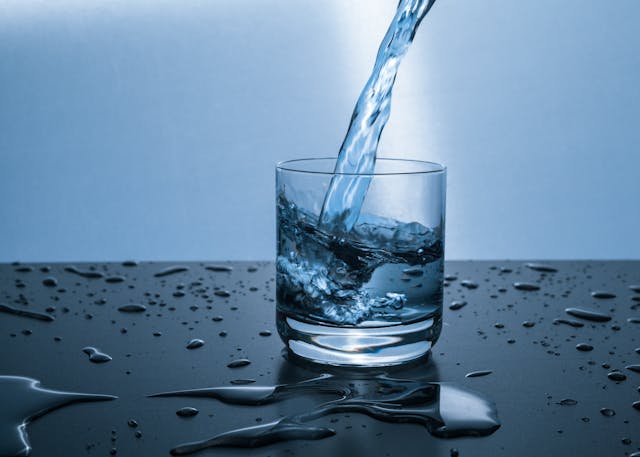
Why do we die so quickly without water? Our bodies need water for so many processes and that means it needs a steady supply of water going in to balance the water going out.
There is a saying that a human can go three minutes without oxygen, three days without water, and three weeks without food. That obviously varies from person to person, but it is a good general rule. If most people are starved of oxygen for longer than 3 minutes, your organs start to shut down and your brain begins to die. If you are starved of food for longer than 3 weeks, your body uses up all of its energy stores and all of its fat stores, then starts to break down muscle. Once everything it can break down is gone, you die. Some animals can last ages without drinking. So, why can we only last three days without water?
Three days is not an exact number, but it is a good approximation. Our bodies need water for so many processes. Pretty much any process you can think of in our bodies requires water. We use water to regulate our body temperature through sweating. Water is part of the lubrication in our joints. It is the main content of the mucus that is in many different parts of our bodies. It makes up our saliva, which we use to start digesting our food. It is vital in the brain to make some hormones. 80% of our blood is water and once it has carried oxygen to our cells, it becomes lymph, which carries waste away from the cells. Without water, we would have no blood, and the blood is vital for transporting oxygen, nutrients, and the white blood cells that form our immune system. Then, once it has carried waste to the kidneys to be eliminated, water takes the waste out of our bodies as urine. We are about 60% water and our lungs are 83% water. Our brains and hearts are about 73% water. Without water we cannot function.
So, what happens if you cannot get water? If you are without water, depending on how much you last drank, the first sign that you are getting dehydrated is when you get thirsty. This is your brain’s first way of warning you that you need to drink something. The part of the brain that is responsible for the thirst signals is called the lamina terminalis and it is at the base of the brain, above the brain stem. There is a collection of fluid in the third ventricle, which the lamina terminalis is connected to and monitors. When you haven’t drunk enough, your body starts to run low on water and the volume of your blood decreases. When you have less blood, your blood pressure increases, but the amount of salt in your blood doesn’t change, so the concentration increases. This concentration of salt is called osmolality and the lamina terminalis can tell when the salt concentration is increasing. The lamina terminalis also receives information about blood pressure, if you have eaten, and whether you have slept or not. The lamina terminalis can balance all of this information and tell if you have enough water or not. If you don’t, it sends signals to say that you need to drink, and this is thirst. If your feelings of thirst make you go and drink, then all well and good. You can recover from being dehydrated pretty quickly if you just drink water. But what happens if you can’t get any water? It affects your whole body in several ways.
Your brain starts to suffer. Water is necessary to produce the hormones and neurotransmitters that help you focus and concentrate. Once there isn’t enough water for these, you have memory problems, difficultly focusing, and difficultly thinking logically. The blood vessels to the brain shrink, causing headaches, fatigue, dizziness, and affecting coordination. Your heart begins to suffer as well. As you begin to dehydrate, the volume of blood drops and the heart has to work much harder to get the blood to the organs. Your heart beats very fast and your blood pressure goes up. Your digestive system slows down because there isn’t enough water to lubricate it. Your large intestine absorbs as much water as it can from any food there, causing hard stools and constipation. Drinking at this point can still fix everything.
If you still can’t get any water, you may start to have seizures because oof the concentrations of salt in your blood. Your blood pressure will rise and fall and rise and fall. Your organs will begin to fail because there is not enough blood and not enough oxygen and not enough water. Your kidney will start to fail because the toxins that water usually removes build up and poison the kidney. Everything can still be reversed, even at this point, although just drinking water won’t do it. You will need to be hospitalized and you will need an IV injection of fluids and electrolytes. If you still cannot get water, your kidneys will fail, and the toxins will continue to build up. Your organs will shut down, and you will die. This will generally take between three and five days. And this is what I learned today.
Photo by Pixabay: https://www.pexels.com/photo/fluid-pouring-in-pint-glass-416528/
Sources
https://www.medicalnewstoday.com/articles/325174#effects
https://www.rupahealth.com/post/this-is-what-happens-to-your-body-when-you-are-dehydrated
https://www.usgs.gov/special-topics/water-science-school/science/water-you-water-and-human-body
